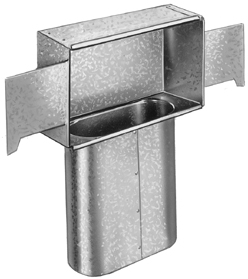Do You Have Dirty Sock Syndrome?
 When you start up your HVAC system, does it emit a mildew-y odor reminiscent of a dirty, musky locker room?
When you start up your HVAC system, does it emit a mildew-y odor reminiscent of a dirty, musky locker room?
The reason for this smell, dubbed “Dirty Sock Syndrome” by many in the HVAC industry, is caused by an accumulation of bacteria that grows on the indoor coils of heat pumps and air conditioners. One of the most common causes of Dirty Sock Syndrome is when a system is run in “heat” mode temporarily before being switched back to cooling. During the heating period, bacteria can collect and grown on the coil, only to be released all at once the coil becomes cool and damp again.
Homeowners with a heat pump may notice this phenomenon at work as well when their system goes into defrost, which usually happens when the temperature outdoors drops to under 40 degrees. Complaints about Dirty Sock Syndrome tend to start surfacing in the Fall since there may be days that are warm enough to require air conditioning during the day but cool enough at night to cause us to power on our heating systems.
Before you can fix Dirty Sock Syndrome in your house, you’ll first have to eliminate other possible sources of foul odors in your system. Dirty Sock Syndrome only occurs when an indoor coil gets cool, releasing a bacterial odor – so if the odor is present in your home all the time and especially when the heat is on, your problem likely stems from a different source. We recommend checking for:
- Dirty drip or drain pans with standing water
- Drain lines that may be incorrectly connected or lacking traps
- Leaks in ductwork
- Dead animals or other debris in or near ductwork or living space
If the problem is positively identified as a bacterial odor being released in the cooling cycle, you can take action to get rid of it by calling R.S. Andrews to inspect and service your system. The cure for Dirty Sock Syndrome usually involves:
- A thorough cleaning of your system’s evaporator coil
- Possible application of sprays or other chemicals to your coil that can prevent airborne contaminants from establishing themselves
- As a last resort if cleaning doesn’t resolve the problem, replacement of your evaporator coil
Hopefully this gives you an idea of why Dirty Sock Syndrome occurs and how it can be eliminated. If you have a foul smell coming out of your HVAC system, call R.S. Andrews today and our expert HVAC techs can find the source of the problem and make sure it’s fixed to your and our satisfaction – fast!





